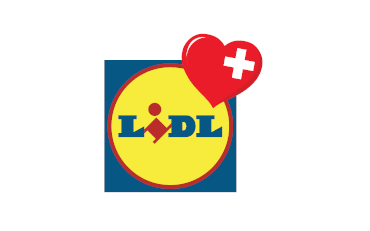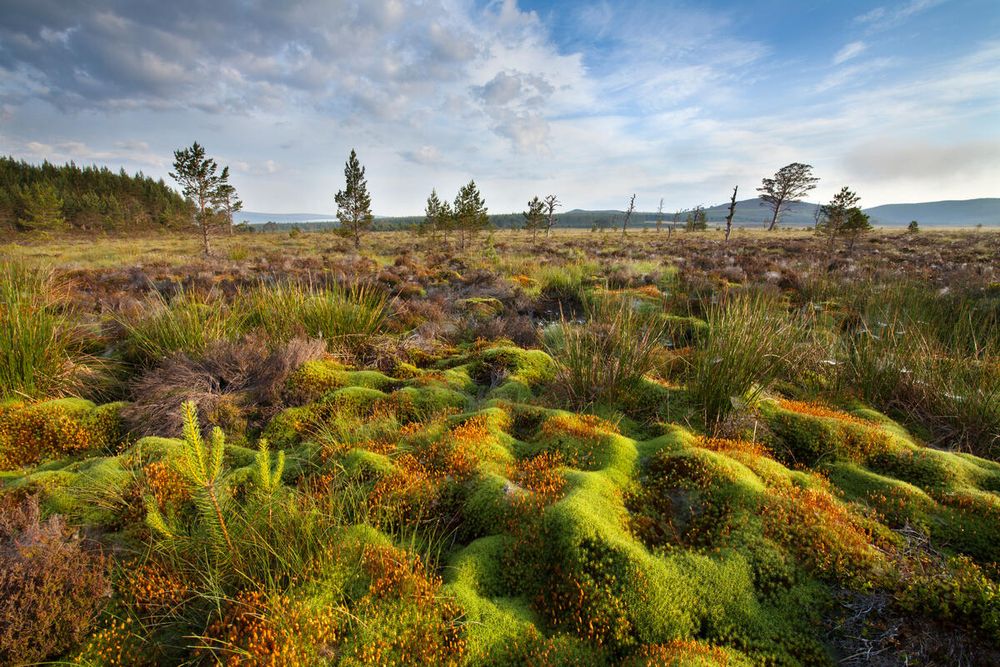Partnership with Lidl Switzerland 2023
Lidl Switzerland has been steadily strengthening its sustainability efforts in recent years – with significant success. At the beginning of 2017, Lidl Switzerland entered into a partnership with WWF Switzerland, committing to comprehensive, specific, and ambitious sustainability goals. The focus is on the further conversion of the product range to more environmentally friendly products and the reduction of the company’s emissions.


CLIMATE AND ENERGY
Lidl Switzerland more than halved its relative operational greenhouse gas emissions between 2013 and 2019, thereby exceeding the reduction goal agreed with WWF. Even more ambitious goals were set from 2020: Lidl Switzerland has committed itself to the Science-Based Targets Initiative (SBTi) and extended its flight ban to include other products.
Science Based Targets
As part of the Science-Based Targets Initiative (SBTi) co-founded by WWF, Lidl Switzerland has committed itself to reducing its emissions. Lidl Switzerland joined the initiative in 2019 and has expanded its existing operational CO2 footprint to include other indirect emissions. Indirect emissions include those of traded products.
Air-freighted products
To reduce greenhouse gas emissions, Lidl Switzerland has implemented a flight ban for the entire range of fresh fruit and vegetables since it entered the market in 2009. As part of the partnership with WWF Switzerland, Lidl Switzerland has expanded this goal to include the product categories of fresh herbs, fresh meat, and fresh fish.
This is measured as the share of products flown in of the overall range of fresh vegetables and fruits, fresh meat and fish, and fresh herbs. The reporting period is March 2023 to February 2024.
In the 2023 financial year, Lidl Switzerland did not air freight in any fresh fruit, vegetables, herbs, fish, or meat and thereby continues to achieve their goal.

FISH AND SEAFOOD
As a smart discounter, Lidl Switzerland pursues an ambitious goal for recommendable fish and seafood, relying especially on renowned labels.
Proportion of recommended or acceptable sources according to WWF in the total seafood range
Lidl Switzerland has set itself the goal of ensuring that 100% of the total seafood range comes from recommended or acceptable sources according to WWF. Scope is the number of items in the total range. Reporting period is March 2023 to February 2024.
In 2023, 95.90% of the total seafood range came from recommended or acceptable sources.
Note: In 2023, some items with a score of 4 and 5 were on sale in the promotional range, some of which were left over from the previous year. These will be converted or discontinued.
Fixed listing: proportion of recommendable sources according to WWF
Lidl Switzerland's aim is to only sell fish and seafood products in the fixed list that have been awarded a score of 1 or 2 according to the WWF methodology or bear mutually defined sustainability labels. The number of fish and seafood products with a score of 1-2 or a recommended sustainability label is measured against the total number of fish and seafood products. The figures are given as a percentage. The accepted standards are MSC (Marine Stewardship Council), ASC (Aquaculture Stewardship Council) or organic.
Scope is the fixed listing of the entire range. Reporting period is March 2023 to February 2024. In the 2023 financial year, 100% of the fixed-list product range came from recommended sources.

PALM OIL
Lidl Switzerland has decided to only use sustainable, RSPO-certified (Roundtable on Sustainable Palm Oil) palm oil for its own-brand products and to get involved in the Swiss Palm Oil Network.
Share of physically sustainable palm oil in own-brand food products
Lidl Switzerland aims to only use physically sustainable palm oil in its own-brand products in the food segment as of the end of the 2018 financial year. This is measured as the share of food products containing physically sustainable palm oil relative to the total number of food products containing palm oil, shown as a percentage. The accepted standards are RSPO IP, RSPO Segregated, organic (Suisse, Switzerland, EU), POIG. The reporting period runs from March 2023 to February 2024.
In 2023, 99.88 % of the palm oil in the own-brand food range was physically sustainable.
Note: Individual items containing palm oil that was not (sufficiently) certified were put on sale. These are being converted or discontinued.
Share of certified palm oil in near-food own-brand products.
Lidl Switzerland aims to only use sustainable palm oil in its own-brand near-food products as of the end of the 2018 financial year. This is measured as the share of near-food products containing sustainable palm oil relative to the total number of near-food products containing palm oil, shown as a percentage. The accepted standards are RSPO IP, RSPO Segregated, RSPO Mass Balance, and Bio (Suisse, EU) and POIG The reporting period runs from March 2023 to February 2024.
In 2023, Lidl Switzerland continued to meet their goal of 100% certified palm oil in own-brand near-food products.

WOOD AND PAPER
Lidl Switzerland aims to only use 100% sustainable, certified cellulose for its standard range of own-brand paper products and packaging.
Products and packaging made from sustainable cellulose
Lidl Switzerland has set the goal to obtain 90% of all cellulose in products and packaging from sustainable sources. This includes cellulose in the standard range of own-brand products and packaging, outer packaging, and labels (primary and secondary packaging). The accepted standards are FSC, FSC mix, recycling, and Blue Angel. The reporting period is March 2023 to February 2024.
Full monitoring for primary and secondary packaging could not be ensured during the reporting period due to the complex company and supplier structure of Lidl Switzerland. Therefore, the degree of goal achievement cannot be shown for packaging. The graph below only shows the goal achievement for products with cellulose content. 92.98% of all products containing cellulose were from sustainable sources in 2023.

OTHER RAW MATERIALS
Lidl Switzerland has also set itself the goal of ensuring that cocoa, coffee, and tea come from certified sustainable sources.
Share of own-brand cocoa products with sustainability standard
Lidl Switzerland has set the goal that by the end of 2017, all cocoa in own-brand products should come from certified, sustainable sources. This is measured as the number of relevant cocoa products with a sustainability label relative to the total number of relevant cocoa products, shown as a percentage. A "relevant cocoa share" is defined as any volume share exceeding 1% of the product. The following standards are accepted: Fairtrade, organic (Suisse, Schweiz, or EU), and Rainforest Alliance. The reporting period runs from March 2023 to February 2024.
In the 2023, Lidl Switzerland reached the goal of 100%.
Share of coffee products with a sustainability standard in own-brand products
Lidl Switzerland has set the goal that from 2019 on, all own-brand coffee should come from certified, sustainable sources. . This is measured as the share of relevant coffee products with a sustainability label relative to the total number of relevant coffee products, shown as a percentage. A "relevant coffee share" is defined as any volume share exceeding 1% of the product. The following standards are accepted: Fairtrade, organic (Suisse, Schweiz, or EU), and Rainforest Alliance. The reporting period runs from March 2023 to February 2024.
In 2023, Lidl Switzerland has met the target of 100% certified coffee again.
Share of tea products with a sustainability standard in own-brand products
Lidl Switzerland has set the goal that by the end of 2018, all tea from non-EU countries (black, green, and rooibos tea) in own-brand products should come from certified, sustainable sources. This is measured as the number of relevant tea products with a sustainability label relative to the total number of relevant tea products, shown as a percentage. A "relevant tea share" is defined as any volume share exceeding 1% of the product. The following standards are accepted: Fairtrade, organic (Suisse, Schweiz, or EU), and Rainforest Alliance. The reporting period runs from March 2023 to February 2024.
In 2023, Lidl Switzerland met the 100% goal again.
Share of relevant tropical fruits with sustainability standard
Lidl Switzerland has set the goal of only offering 100% certified relevant fresh, overseas tropical fruits (bananas, mangos, and pineapples) by the end of 2019. The number of relevant tropical fruits certified is measured against the total number of relevant tropical fruits. Fairtrade, organic (Suisse, Switzerland, EU), Rainforest Alliance, and Siza Environmental Standard are accepted standards. The reporting period runs from March 2023 to February 2024.
In 2023, the certified proportion of fresh tropical fruits was 100 %.
Note: For selected origins of mango, Lidl Switzerland worked risk-based with the GlobalG.A.P. SPRING/GRASP,SCS and SIZA standards since 2022. After reviewing these standards, the WWF accepted these standards on a risk basis and in individual cases in 2023. For this reason, the data for the data for 2022 was also adjusted retroactively.
Share of peat in soils
Lidl Switzerland has set the goal of no longer selling peat-containing soil as of the end of 2019. The share of peat in all packaged soil sold is measured.
Lidl Switzerland was already able to achieve the final target of 0% peat-containing soil in 2018.
No peat-containing soil was sold in the 2023 financial year, and the target was thus met again.


